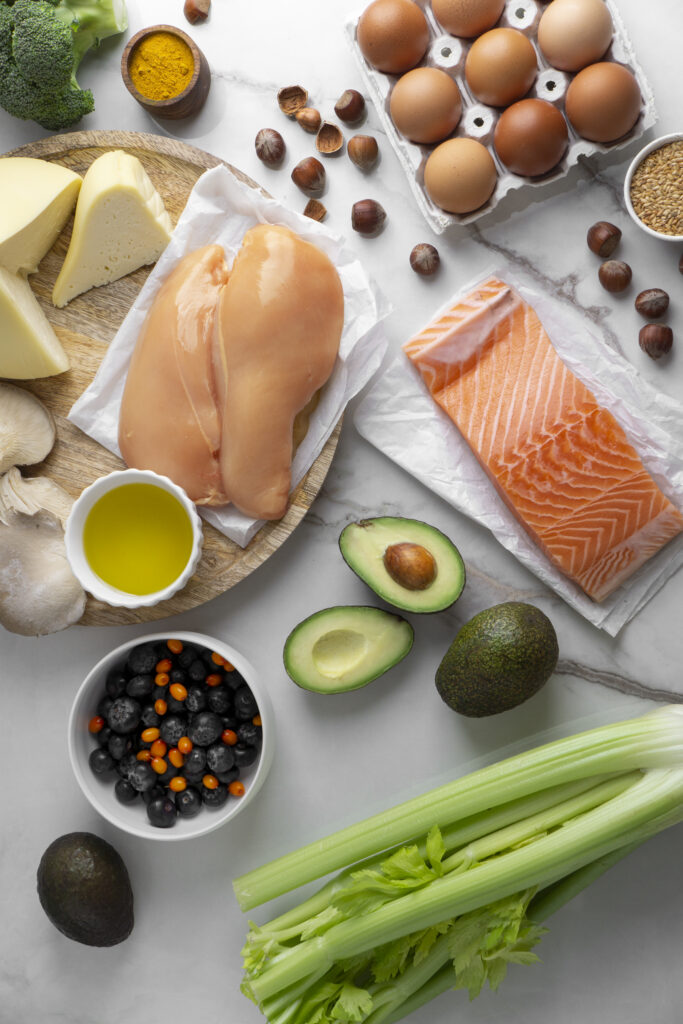
Congratulations on becoming new parents! This exciting journey comes with a whirlwind of information, and one important aspect is your postpartum diet. Omega-3 fatty acids, also referred to as omega-3s or omega iii, are crucial for both you and your baby’s development. Let’s explore omega-3 benefits, how to incorporate them through omega-3 foods and fish oil, and answer some common questions about omega-3 supplements.
Why are Omega-3s Important During Pregnancy?
Omega-3 fatty acids play a vital role in your baby’s brain and eye development. These essential nutrients are particularly important during the third trimester when fetal brain growth accelerates. Studies suggest that sufficient omega-3 intake during pregnancy may also reduce the risk of allergies in infants and improve overall childhood development.
Omega-3s benefit you as well, mama! They may help prevent postpartum depression, reduce inflammation, and improve your overall well-being.

Incorporating Omega-3s into Your Diet:
The good news is that you can get your daily dose of omega-3s through your diet! Here are some delicious omega-3 foods to include in your meals:
- Fatty Fish: Salmon, sardines, herring, mackerel, and anchovies are all excellent sources of the long-chain omega-3 fatty acids EPA and DHA, which are most beneficial for you and your baby. Aim for two servings (around 6 ounces each) per week. Be sure to choose varieties lower in mercury content, such as Atlantic salmon or Pacific sardines.
- Plant-Based Sources: While not as readily absorbed by the body, plant-based options like flaxseeds, chia seeds, and walnuts contain ALA, an omega-3 that your body can convert to EPA and DHA. To maximize your ALA intake, try grinding flaxseeds or sprinkling them on yogurt or oatmeal.
Fish Oil Supplements: A Safe and Effective Option
If you’re struggling to include enough omega-3 rich foods in your diet, considering fish oil supplements can be a safe and effective alternative. Look for a high-quality, purified fish oil supplement that is free of mercury and other contaminants.
Choosing the Best Omega-3 Supplement:
When selecting an omega-3 supplement, discuss it with your doctor. They can recommend a dosage and brand based on your individual needs. Here are some additional factors to consider:
- Purity: Opt for a fish oil supplement that undergoes rigorous testing for mercury and other contaminants. Look for third-party certifications from organizations like USP or NSF International.
- Dosage: Look for a supplement that provides a combined EPA and DHA content of around 1,000 mg per day. Your doctor may recommend a higher or lower dosage depending on your specific needs.
- Form: Fish oil pills are readily available, but some find them to have an unpleasant aftertaste. Look for chewable options or enteric-coated capsules to minimize this. Consider talking to your doctor about krill oil supplements, which may also provide omega-3s with a reduced risk of aftertaste.
Krill Oil vs. Fish Oil:
Krill oil is another source of omega-3s. While it may offer some benefits like better absorption and reduced risk of aftertaste, fish oil is generally more affordable and has a longer history of research supporting its effectiveness during pregnancy.
Conclusion:
Omega-3s are essential nutrients for both you and your baby’s development. By incorporating omega-3 rich foods and considering fish oil supplements, you can ensure you’re providing the building blocks for a healthy start. Remember, consulting your doctor before starting any new supplements during pregnancy is crucial.So, mamas, have you incorporated omega-3s into your diet? What are your favorite omega-3 rich foods? Share your experiences in the comments below! I’d love to hear how you’re incorporating these essential nutrients into your postpartum journey.

